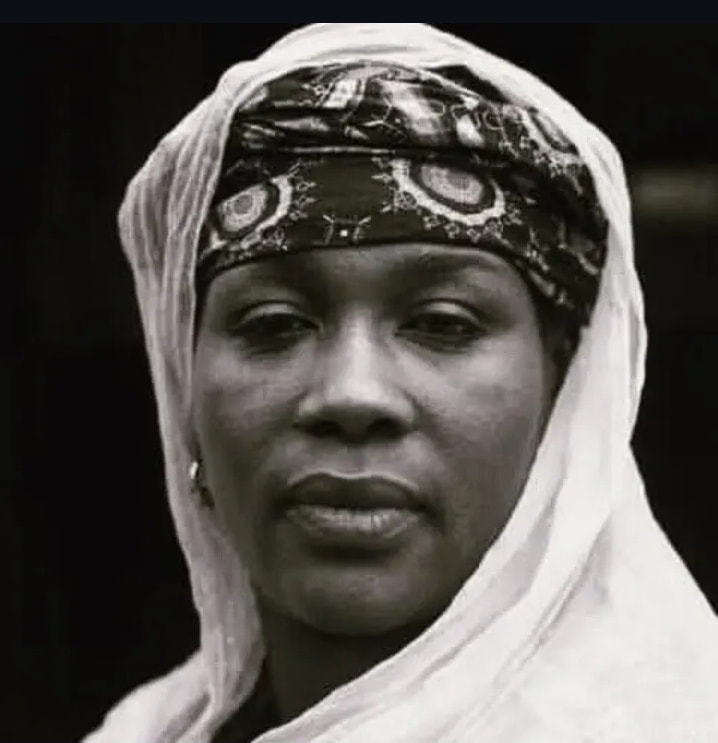From early marriage to literary empowerment, Balaraba Ramat Yakubu’s journey reshaped women’s narratives in Hausa society.
A Trailblazer in Hausa Literature
Balaraba Ramat Yakubu stands as one of Northern Nigeria’s most influential literary voices. Born in 1959 in Kano State, she rose from a conservative background to become a powerful advocate for women’s rights and education through her writing. Her novels, written in Hausa, belong to a popular literary genre known as littattafan soyayya—literally translated as “books of love.” But beneath their romantic surface lies sharp social commentary on patriarchy, gender inequality, and the struggles of Northern Nigerian women.
She holds the distinction of being the first female Hausa-language author whose work was translated into English, bringing Northern Nigerian women’s experiences to a global audience.
Early Life and Education
Balaraba Ramat Yakubu was born into a traditional Hausa family in Kano, Northern Nigeria. Growing up in a society where women’s roles were often confined to domestic spaces, her opportunities for formal education were limited. She attended only a few years of primary school before being married off at the age of 13, an experience that would later shape much of her creative and thematic vision.
Her early marriage exposed her to the realities of polygamy, societal expectations, and gender inequality—issues she would later confront directly in her writing. Despite these obstacles, Balaraba nurtured a passion for storytelling and literacy. Her self-driven education and persistence transformed her into a writer of remarkable cultural influence.
Rise of a Literary Icon
Yakubu’s literary journey began in the 1980s, during a time when women’s voices were largely absent from the Hausa literary scene. The littattafan soyayya movement emerged as a new wave of popular fiction that blended love stories with moral and social lessons. However, Yakubu’s contributions went beyond mere entertainment. Her stories highlighted the daily struggles of women navigating marriage, poverty, and societal expectations.
Her most famous novel, Alhaki Kuykuyo Ne (Sin is a Puppy that Follows You Home), became a landmark in Hausa literature. The novel tells the story of a woman mistreated by her husband, exploring themes of betrayal, justice, and moral accountability. It offered readers a bold critique of gender oppression and religious hypocrisy in Northern Nigeria.
In 2012, the novel was translated into English by Aliyu Kamal and published by the African Books Collective, earning Yakubu international recognition as a feminist literary pioneer.
Themes and Influence
At the heart of Balaraba Ramat Yakubu’s work lies a deep concern for women’s empowerment and education. She often uses her female characters to challenge societal norms and question traditional gender roles. Through her stories, she promotes literacy, independence, and self-awareness among women in Hausa society.
Her works also reflect her Islamic faith, merging moral teachings with social reform. She has stated that her writing seeks to “correct societal wrongs” by teaching moral lessons in a language and style that resonates with Hausa-speaking audiences.
Yakubu’s novels are often discussed in the context of African feminist literature. However, she identifies not as a Western-style feminist, but as a reformer working within her cultural and religious framework—a stance that has made her both respected and controversial within conservative circles.
Beyond Writing: Film and Cultural Work
In addition to her success as an author, Balaraba Ramat Yakubu is a screenwriter, producer, and director in the Kannywood film industry—the Hausa-language film scene based in Kano. Her transition from literature to film allowed her to reach wider audiences, especially women who could not read.
Her screenwriting often mirrors her literary themes, portraying female characters who defy stereotypes and fight for dignity and justice. By working in film, Yakubu helped expand the visibility of women’s voices in a male-dominated industry, contributing to the cultural evolution of Northern Nigerian cinema.
Personal Life and Legacy
Balaraba Ramat Yakubu’s life reflects resilience and purpose. Having faced early marriage and limited access to education, she transformed personal adversity into creative power. Her stories continue to inspire women to pursue education and self-reliance, especially in communities where such ideals are often discouraged.
Today, she is celebrated as one of the matriarchs of Hausa literature and a pioneer of women’s writing in Northern Nigeria. Her influence extends beyond literature into social advocacy and cultural preservation. Through her writing, she gave a voice to countless women whose stories were previously unheard.
References
Yakubu, Balaraba Ramat. Alhaki Kuykuyo Ne (Sin is a Puppy that Follows You Home). African Books Collective, 2012.
Furniss, Graham. “Love, Romance and Popular Fiction in Northern Nigeria.” Research in African Literatures, Vol. 42, No. 4, 2011.
British Library. “Balaraba Ramat Yakubu: Hausa Writer and Filmmaker.”
BBC Hausa Archives, “Women Who Changed Northern Nigeria,” 2019.
Nigerian Tribune, “Balaraba Ramat Yakubu: The Woman Who Dared to Write in Hausa,” 2021.
FOLLOW US ON:
FACEBOOK
TWITTER
PINTEREST
TIKTOK
YOUTUBE
LINKEDIN
TUMBLR
INSTAGRAM































